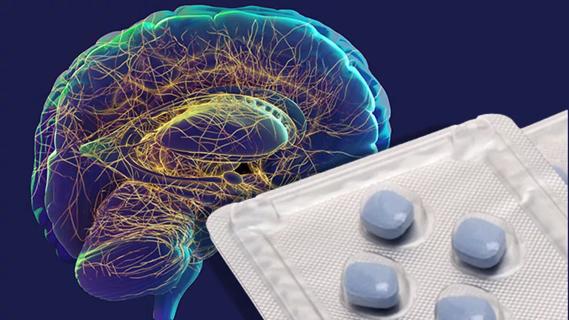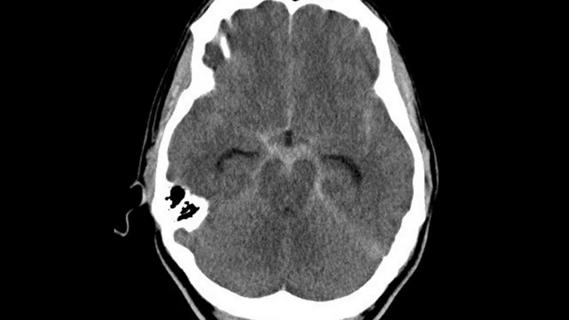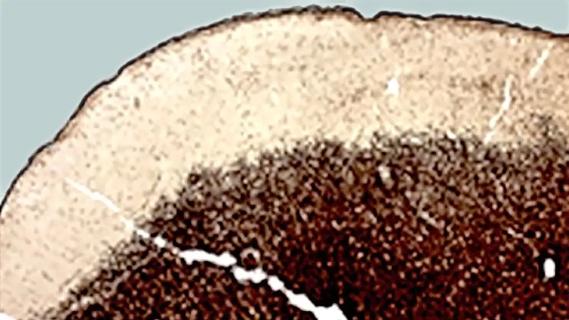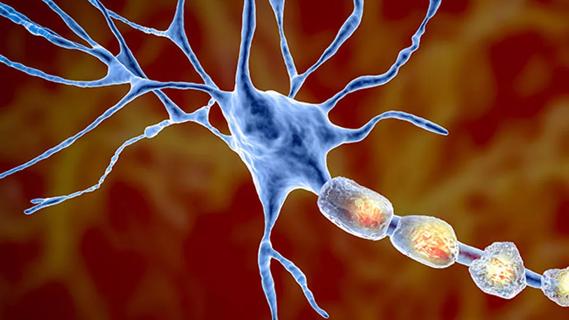A guide for primary care physicians

For their patients presenting with new complaints or conditions associated with multiple sclerosis (MS), some primary care physicians (PCPs) take a proactive role and send them directly for an MRI rather than for an initial neurology referral and subsequent MRI. This approach not only saves time. It may mean earlier diagnosis and start of treatment to alleviate painful symptoms of MS and slow its progress.
Advertisement
Cleveland Clinic is a non-profit academic medical center. Advertising on our site helps support our mission. We do not endorse non-Cleveland Clinic products or services. Policy
This is just one example of why both PCPs and neurologists are critical to provide optimal care for MS patients, says Mary R. Rensel, MD, a neurologist in neuroimmunology at Cleveland Clinic’s Mellen Center for Multiple Sclerosis Treatment and Research. Here, Dr. Rensel discusses the role of PCPs in caring for MS patients and gives an overview of the specialized services Cleveland Clinic can offer:
A: “Neurologists rely on primary care physicians to be our eyes and ears,” Dr. Rensel explains. “When MS is diagnosed, the neurologist may see the patient once or twice a year vs. the patient’s more frequent office visits and calls to the primary doctor.
“PCPs are the constant on the team, particularly when it comes to preventing or controlling high cholesterol, high blood pressure, diabetes,” she adds. “Primary physicians work in concert with neurologists to adjust treatments for patients’ flares, manage pain and maintain their quality of life as much as possible.”
The better general health MS patients are able to maintain, the better they typically will do in their MS course. PCPs can also help MS patients manage any comorbidities that they are at higher risk for, including urinary tract infections and osteopenia/osteoporosis.
A: “Talk to your patients,” Dr. Rensel advises. It is important for them to understand that specific criteria must be met in order for MS to be diagnosed. This is because we have no single test for it and also because symptoms vary among people. In addition, some diseases masquerade as MS, further complicating diagnosis.
Advertisement
“Explain that the MRI of the brain needs to show a specific pattern of lesions forming over time, and referral can wait (if the MRI is not diagnostic) as an option unless the symptom needs more urgent care,” she says. “And offer reassurance that you will remain closely involved in your patients’ treatment.”
A: “Until recently, disease-modifying treatments for MS were administered via IV or injection only,” Dr. Rensel says. “Now, three oral treatments have become available, and others are in clinical trials.”
The newest of these oral disease-modifying agents is dimethyl fumarate (Tecfidera®). This MS therapy, approved in March 2013, is taken twice daily. It can be an appropriate option for first-line treatment of relapsing forms of MS and an alternative treatment to other MS therapies.
“Research continues to develop and improve treatments of all types,” Dr. Rensel adds.
A: The Mellen Center staff can work hand in hand with PCPs to provide an extensive range of care and services for multiple sclerosis patients, Dr. Rensel says. The Mellen Center team is happy to consult with you on a patient whenever needed. Other offerings include diagnostics, testing and treatment; health psychology; neurological rehabilitation; occupational therapy; alternative and complementary medicine; driver rehabilitation; and more.
Patients who qualify can also participate in national research studies and clinical trials.
Advertisement
Advertisement

New study advances understanding of patient-defined goals

Testing options and therapies are expanding for this poorly understood sleep disorder

Real-world claims data and tissue culture studies set the stage for randomized clinical testing

Digital subtraction angiography remains central to assessment of ‘benign’ PMSAH

Cleveland Clinic neuromuscular specialist shares insights on AI in his field and beyond

Findings challenge dogma that microglia are exclusively destructive regardless of location in brain

Neurology is especially well positioned for opportunities to enhance clinical care and medical training

New review distills insights from studies over the past decade